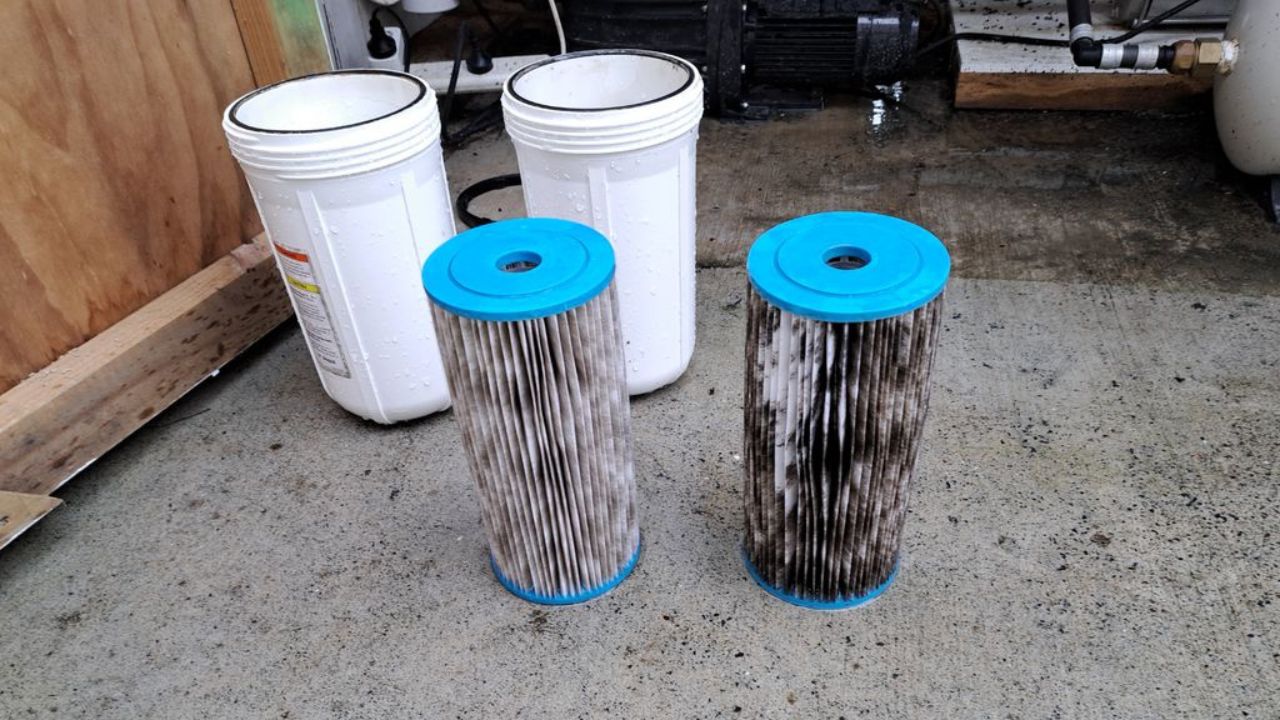Water filters play a crucial role in delivering safe, great-tasting water to your home or workplace. However, many people wonder: can bacteria grow in water filters? The short answer is yes—bacteria can develop within filters if not maintained properly. Below, we’ll explore why this happens, signs to watch out for, and best practices to prevent bacterial growth in your filtration system.
1. Understanding How Bacteria Get into Water Filters
Bacteria Are Everywhere
It’s important to remember that bacteria exist naturally in our environment. Even treated municipal water can contain minute bacterial populations, though typically these are at levels deemed safe for human consumption.
Filter Media as a Breeding Ground
Water filters often use activated carbon, ceramic, or other porous materials that can trap impurities. Over time, organic matter and microscopic organisms can accumulate within these pores. In a moist, nutrient-rich environment, certain bacteria can multiply.
2. Factors That Contribute to Bacterial Growth
Infrequent Filter Replacement
Filters have a recommended lifespan, and exceeding this duration can cause a buildup of trapped particles. When organic matter isn’t flushed out regularly, it can provide a food source for bacteria.
Irregular Maintenance
Water filtration systems—especially whole-house filters or those that incorporate multiple stages—benefit from periodic cleaning and sanitisation. Overlooking this step may encourage bacterial colonies to form.
Stagnant or Low Flow Water
If water sits in a filter for extended periods (e.g., you’re away on holiday, or the filter is undersized for your household’s usage), the stagnation can promote bacterial proliferation.
Improper Installation
A poorly installed filter might allow unfiltered water, debris, or microbes to enter the system at various points, creating pockets where bacteria can thrive.
3. Signs Your Water Filter May Have Bacterial Growth
Unpleasant Odours or Tastes: If you detect a musty or stale flavour, bacteria could be lurking in the filter or related plumbing.
Reduced Water Flow: A sudden drop in pressure or flow may indicate a clogged filter—possibly due to bacterial buildup or other particulates.
Visible Slime or Discolouration: In some cases, you might spot slimy residues around filter cartridges or notice a change in the clarity of the water.
Health Concerns: Gastrointestinal issues or frequent bouts of illness in a household could (in rare scenarios) be linked to bacterial contamination.
4. Best Practices to Prevent Bacterial Contamination
a. Follow the Manufacturer’s Replacement Schedule
Every filter has a recommended change or maintenance interval. Replacing cartridges on time is one of the simplest and most effective ways to prevent bacterial accumulation.
b. Regular Cleaning and Sanitisation
Household Filters: For countertop or under-sink systems, wipe down accessible parts and rinse out any sediment.
Whole-House Systems: Schedule periodic professional maintenance to clean or replace filter media, sanitise tanks, and inspect plumbing connections.
c. Invest in Additional Filtration Stages
UV Sterilisation: Pairing a UV unit with your filter can target bacteria, viruses, and other microorganisms that slip through mechanical filtration.
Sediment Pre-Filters: Installing a pre-filter to capture larger particles can prevent your main filter from clogging and reduce places for bacteria to establish colonies.
d. Monitor Flow Rates
Select a filter sized appropriately for your water consumption. Ensuring regular water turnover prevents long periods of stagnation that foster bacterial growth.
e. Professional Inspection and Installation
Engaging a qualified plumber to install and occasionally inspect your filtration system can help spot potential issues early—such as leaks, loose connections, or unsuitable water pressure—that encourage microbial growth.
5. Frequently Asked Questions
Q1: Should I worry if my filter is unused for a few weeks?
If you leave home for an extended period, run water through the system upon your return for a minute or so. This will help flush out any stagnant water and lower the risk of bacterial proliferation.
Q2: Can I clean and reuse my filter cartridge instead of replacing it?
Some pleated filter cartridges are designed to be cleaned and reused, but many activated carbon filters aren’t. Always check the manufacturer’s instructions to avoid compromising water quality.
Q3: Do smaller, inexpensive filters have a higher risk of bacteria growth?
Risk varies more with usage, maintenance, and water quality than with price. While premium systems often feature better-quality materials, proper care is the biggest factor in preventing bacterial buildup.
6. How Citywide Plumbing Can Help
If you’re concerned about potential bacterial growth in your water filter or need advice on selecting a system that fits your water quality needs, Citywide Plumbing can help in several ways:
- Water Testing and Analysis: Our team can identify bacterial contamination levels and other water quality concerns.
- Tailored Filtration Solutions: We’ll suggest the ideal combination of filters—sediment, activated carbon, reverse osmosis, UV sterilisation—to keep your water safe.
- Professional Maintenance: Routine inspections and cleaning can extend your filter’s life and minimise bacterial risks.
- Expert Installation: We ensure the system is correctly sized, sealed, and set up for optimal performance from day one.
7. Final Thoughts
Can bacteria grow in water filters? Yes, but it doesn’t have to be a cause for alarm if you follow a consistent maintenance routine and replace your filter as recommended. By paying attention to water quality indicators, investing in the right combination of filtration technologies, and seeking professional support when necessary, you can keep your water safe, clean, and pleasant to drink.
For personalised advice or to discuss your water filter concerns, contact Citywide Plumbing. We’re here to help you maintain the integrity of your water supply and ensure it meets the highest quality standards for you and your family.


